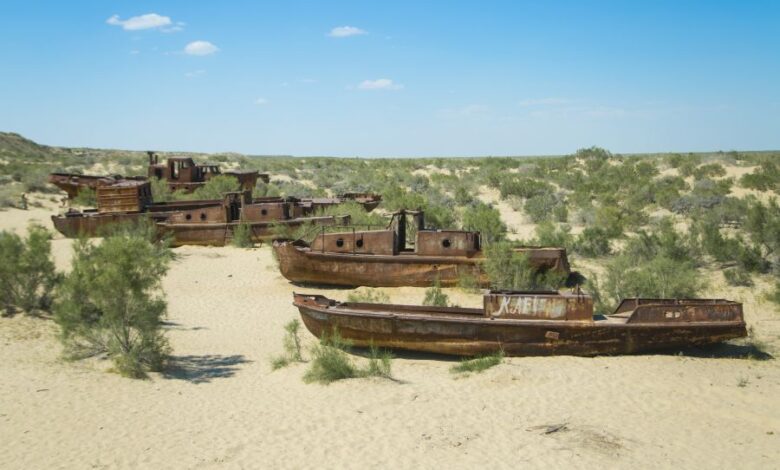
Kazakhstan and Uzbekistan are making significant progress in their joint project to restore the ecosystem of the once-thriving Aral Sea, which has shrunk dramatically due to unsustainable water usage practices in the past, TuraNews.kz reports.
Uzbekistan has already planted saxaul and other salt-tolerant plants on an impressive 1.7 million hectares of land, while Kazakhstan has covered around 600,000 hectares. By 2025, Kazakhstan aims to expand its reforestation efforts to one million hectares.
These ambitious efforts were discussed at the recent Session of the Committee to Review the Implementation of the UN Convention to Combat Desertification in Samarkand. The dried-up sea currently covers an area of six million hectares, and the goal is to restore a significant portion of this land with greenery.
“The most challenging areas are the wetlands closest to the sea, However, we remain committed to this endeavor. By 2030, we aim to have 78% of the affected territories covered with vegetation” Kazhimurat Tolipov, chief specialist of the Forestry Agency of Uzbekistan said.
The restoration project is not only crucial for reviving the Aral Sea ecosystem but also for mitigating the environmental and socioeconomic impacts of the sea’s shrinkage, which has caused desertification, dust storms, and water scarcity. The reforestation efforts will help stabilize the land, improve air quality, and create new opportunities for economic development.



